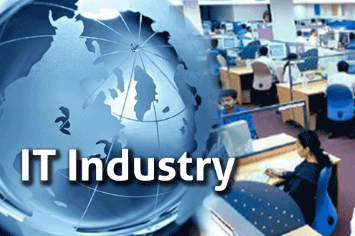The Future of Work: Navigating a Tech-Driven Landscape
Introduction
The world of work is undergoing a dramatic transformation, driven by rapid technological advancements. From artificial intelligence (AI) and automation to remote work and the gig economy, the traditional 9-to-5 job is evolving into something entirely new. This article will delve into the key trends shaping the future of work, explore the challenges and opportunities presented by these changes, and offer strategies for individuals and organizations to navigate this dynamic landscape.
Key Trends Shaping the Future of Work
- AI and Automation:
- AI and automation are rapidly transforming many industries, automating tasks previously performed by humans.
- While this can lead to job displacement in some sectors, it also creates new opportunities in areas like AI development, data analysis, and machine learning.
- Remote Work:
- The rise of remote work is blurring the lines between work and personal life, offering greater flexibility and autonomy for many.
- However, remote work also presents challenges such as maintaining work-life balance and fostering team collaboration.
- Gig Economy:
- The gig economy, characterized by short-term contracts and freelance work, is growing rapidly.
- This offers flexibility and independence but can also lead to job insecurity and income instability.
- The Rise of the "Knowledge Worker":
- As technology advances, the demand for highly skilled knowledge workers, such as data scientists, software engineers, and cybersecurity experts, is increasing.
- Focus on Skills and Lifelong Learning:
- Continuous learning and upskilling are crucial in a rapidly changing job market.
- Individuals must continuously acquire new skills and adapt to evolving technologies to remain competitive.
The Impact of These Trends
These trends are having a profound impact on the world of work:
- Increased Demand for Adaptability and Resilience: Individuals must be adaptable and resilient to navigate the changing job market and embrace new technologies.
- Growing Importance of Human Skills: While automation may replace some routine tasks, uniquely human skills such as creativity, critical thinking, communication, and emotional intelligence will become increasingly valuable.
- Shifting Work-Life Balance: The lines between work and personal life are blurring, requiring individuals to find a healthy balance and manage their time effectively.
- Increased Focus on Employee Well-being: Organizations are increasingly recognizing the importance of employee well-being and are implementing measures to support employee mental and physical health.
Preparing for the Future of Work
To thrive in the future of work, individuals and organizations must:
- Invest in Lifelong Learning: Continuously acquire new skills through online courses, workshops, and other training programs.
- Develop Human Skills: Focus on developing essential human skills such as communication, creativity, critical thinking, and emotional intelligence.
- Embrace Technology: Embrace new technologies and learn how to use them effectively in your work.
- Build a Strong Network: Network with other professionals in your field to build relationships and explore new opportunities.
- Prioritize Work-Life Balance: Establish healthy boundaries between work and personal life to maintain a healthy and sustainable work-life balance.
The Role of Organizations
Organizations also have a crucial role to play in preparing for the future of work:
- Invest in Employee Training and Development: Provide employees with opportunities to learn new skills and develop their careers.
- Foster a Culture of Innovation: Encourage creativity and experimentation, and provide employees with the resources and support they need to succeed.
- Prioritize Employee Well-being: Implement policies and programs that support employee mental and physical health.
- Embrace Diversity and Inclusion: Create an inclusive workplace that values diversity of thought and experience.
- Adapt to New Ways of Working: Embrace flexible work arrangements, such as remote work and flexible schedules, to attract and retain top talent.
The Future of Work: Challenges and Opportunities
The future of work presents both challenges and opportunities.
- Challenges:
- Job displacement due to automation
- Income inequality
- Cybersecurity threats
- Maintaining work-life balance in a hyper-connected world
- Opportunities:
- Increased flexibility and autonomy
- Greater access to education and training
- Opportunities for innovation and entrepreneurship
- Improved work-life balance for many
Conclusion
The future of work is uncertain, but one thing is certain: it will be radically different from the past. By embracing change, investing in lifelong learning, and developing essential skills, individuals can navigate this dynamic landscape and build successful careers. Organizations must also adapt to the changing needs of their workforce and create a supportive environment for their employees to thrive.







